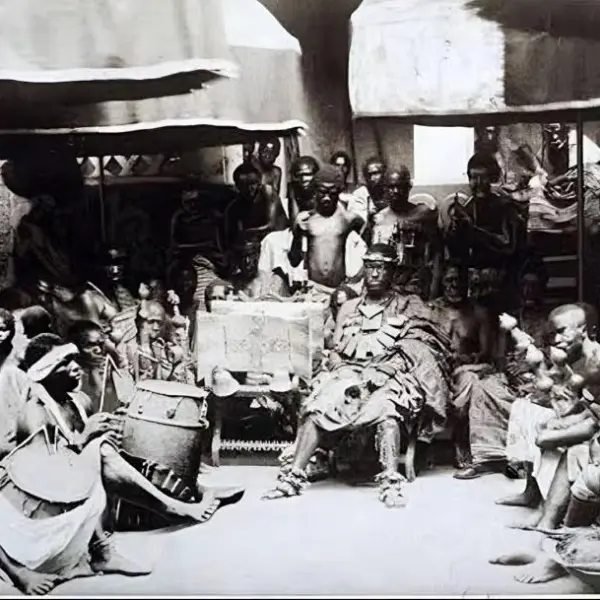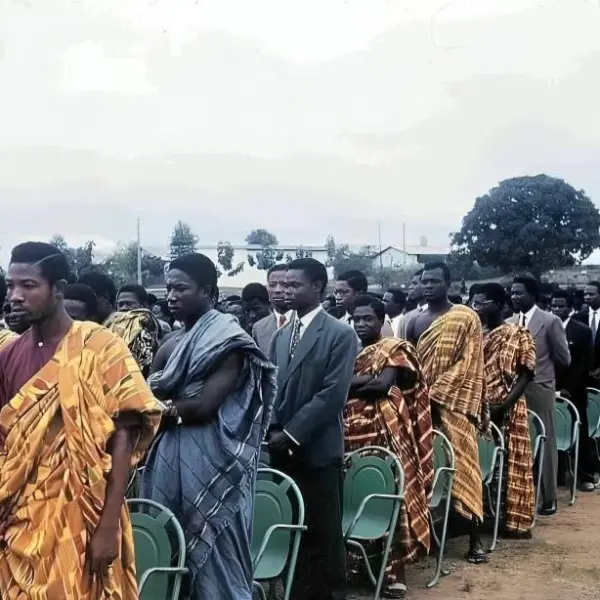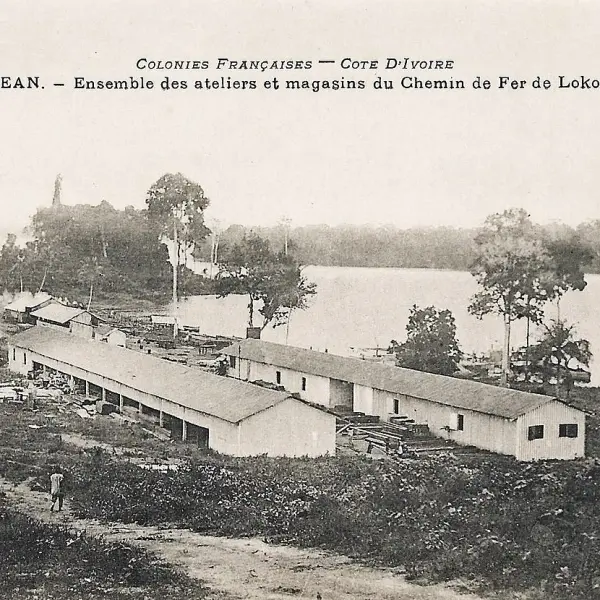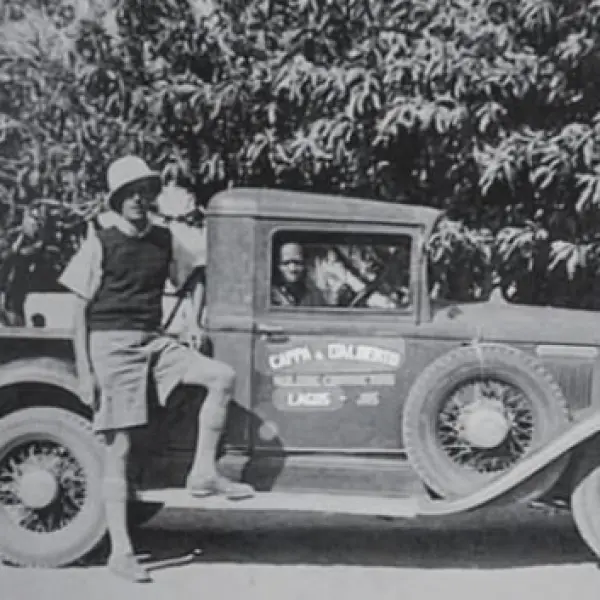King Kwaku Dua and the Golden Stool,
King Kwaku Dua I was a prominent ruler of the Ashanti Kingdom in Ghana during the late 19th century. He ascended to the throne in 1874 and reigned until his death in 1884. His reign took place during a period of significant internal and external challenges for the Ashanti Empire, which was one of the most powerful and organized states in West Africa at the time.
The Ashanti Empire, with its capital at Kumasi, was a well-established and influential kingdom in the region, known for its military strength, advanced political organization, and rich cultural heritage. The Golden Stool, a sacred symbol of Ashanti unity and kingship, played a vital role in the monarchy’s authority and the kingdom’s identity. According to Ashanti legend, the stool was created by the priest Okomfo Anokye and was said to embody the soul of the Ashanti people. It was considered so sacred that no one, except the king, was allowed to touch it.
In 1880, King Kwaku Dua I was at the heart of the Ashanti kingdom's complex relationship with the British, who were gradually expanding their influence in the region. The British had long sought to control Ashanti territory due to its strategic location and valuable resources. This period marked the beginning of increasing friction between the Ashanti Empire and the British, leading to the eventual Anglo-Ashanti Wars.
One of the most significant moments of tension during Kwaku Dua's reign was the British desire to exert control over the Ashanti Empire, including their desire to possess the Golden Stool. The British believed that the stool symbolized the power and sovereignty of the Ashanti monarchy and sought to undermine its spiritual significance in an attempt to weaken the Ashanti people's resistance to colonial rule.
In 1900, years after Kwaku Dua's reign, an incident occurred that would forever be tied to the history of the Golden Stool. The British governor at the time, Lord Frederick Hodgson, demanded that the stool be brought to him. This demand sparked outrage among the Ashanti people and led to a violent uprising known as the War of the Golden Stool. Although Kwaku Dua had passed away by this time, his legacy as a protector of the stool and the Ashanti tradition lived on, and his descendants fought valiantly to preserve their cultural identity and reject foreign domination.
King Kwaku Dua I, during his reign, symbolized the resilience and strength of the Ashanti Kingdom in the face of both internal challenges and external colonial pressures. The Golden Stool remained an enduring symbol of Ashanti sovereignty, with its cultural significance continuing to play a central role in the kingdom’s identity long after Kwaku Dua’s time. His reign is remembered as one of determination and resistance in the face of British encroachment on Ashanti lands and customs.
The Ashanti Empire, with its capital at Kumasi, was a well-established and influential kingdom in the region, known for its military strength, advanced political organization, and rich cultural heritage. The Golden Stool, a sacred symbol of Ashanti unity and kingship, played a vital role in the monarchy’s authority and the kingdom’s identity. According to Ashanti legend, the stool was created by the priest Okomfo Anokye and was said to embody the soul of the Ashanti people. It was considered so sacred that no one, except the king, was allowed to touch it.
In 1880, King Kwaku Dua I was at the heart of the Ashanti kingdom's complex relationship with the British, who were gradually expanding their influence in the region. The British had long sought to control Ashanti territory due to its strategic location and valuable resources. This period marked the beginning of increasing friction between the Ashanti Empire and the British, leading to the eventual Anglo-Ashanti Wars.
One of the most significant moments of tension during Kwaku Dua's reign was the British desire to exert control over the Ashanti Empire, including their desire to possess the Golden Stool. The British believed that the stool symbolized the power and sovereignty of the Ashanti monarchy and sought to undermine its spiritual significance in an attempt to weaken the Ashanti people's resistance to colonial rule.
In 1900, years after Kwaku Dua's reign, an incident occurred that would forever be tied to the history of the Golden Stool. The British governor at the time, Lord Frederick Hodgson, demanded that the stool be brought to him. This demand sparked outrage among the Ashanti people and led to a violent uprising known as the War of the Golden Stool. Although Kwaku Dua had passed away by this time, his legacy as a protector of the stool and the Ashanti tradition lived on, and his descendants fought valiantly to preserve their cultural identity and reject foreign domination.
King Kwaku Dua I, during his reign, symbolized the resilience and strength of the Ashanti Kingdom in the face of both internal challenges and external colonial pressures. The Golden Stool remained an enduring symbol of Ashanti sovereignty, with its cultural significance continuing to play a central role in the kingdom’s identity long after Kwaku Dua’s time. His reign is remembered as one of determination and resistance in the face of British encroachment on Ashanti lands and customs.
Envíado por OldPik el 7 de enero de 2024
Image

Debes iniciar sesión para comentar las fotos.
Iniciar sesión
Iniciar sesión














Sin comentarios aún, sé el primero en comentar...